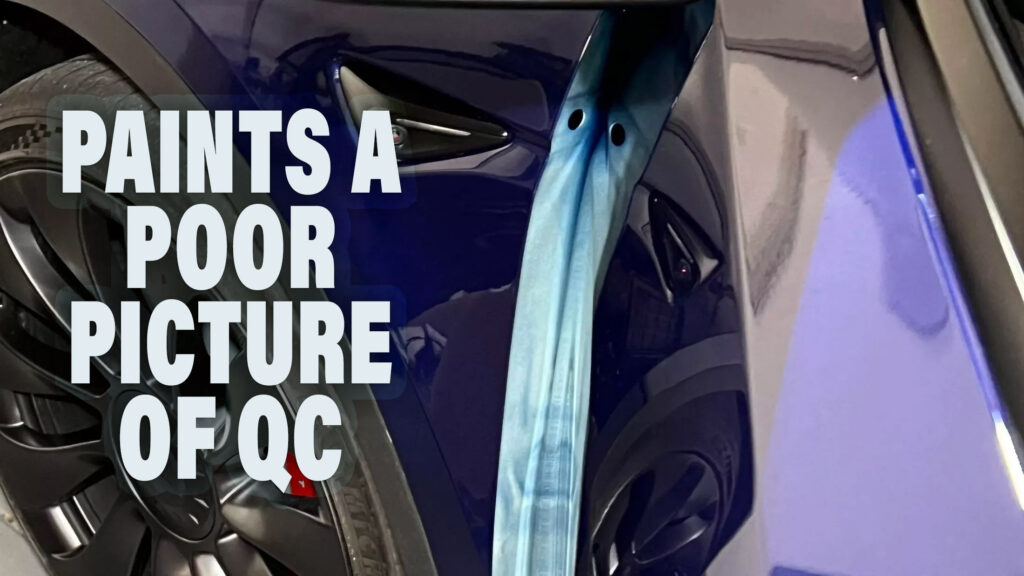In its early days, Tesla earned a reputation for producing highly popular and well-engineered EVs, but ones that weren’t assembled with the utmost quality. A recent Reddit post featuring a Model Y with unpainted door jambs indicates that quality concerns persist within the company.
Redditer u/cryptoflipo posted a photo of their new Model Y, which they say was built in Fremont, California. In the snapshots shared to the social media channel, it’s clear as day that substantial portions of the door jamb still sport a primer white hue.
“Anybody else have this? I took delivery of this 2023 MY at the end of September, it was built in September in the Fremont plant,” wrote u/cryptoflipo. “I in fact just noticed this and I am a bit shocked.”
Read: Tesla Delivered A Brand New $131k Model X Plaid With Mismatched Tires
In the comments, the user mentions that the photos may exaggerate the extent of the paint issue, and they clarify that it’s primarily visible when the door is open. However, several other users in the Reddit thread have reported encountering similar paint problems, indicating that this may be a recurring quality issue in the paint shop rather than an isolated oversight.
While Tesla is far from being the only automaker that has quality issues with its paint – just check out our recent post about a Ferrari 296 GTB, allowing new vehicles to depart the factory with errors this obvious does not speak highly of its quality assurance procedures.
This is far from the first production fault we’ve seen from Tesla. For instance, in July, another Reddit poster complained about their Model Y. Except, in this case, the issue was misaligned door seals that led to excessive noise in the cabin.
Problems aren’t limited to the Model Y, either. Tesla Model S and X buyers have been complaining about the quality on the surface of their steering yokes, which are prone to peeling. And who could forget the Model 3’s problem with spontaneously bursting windows and bumpers that fell off in the rain.
In 2021, CEO Elon Musk blamed the problem on the difficulties of ramping up production, but these more recent issues suggest that the problem runs deeper than that.







